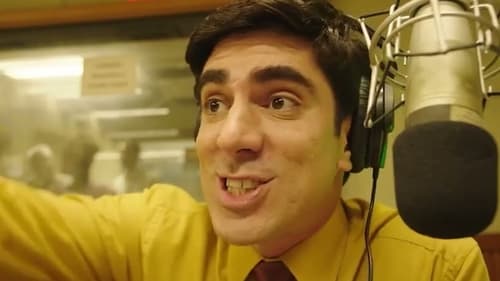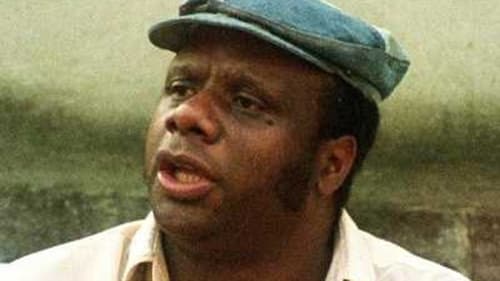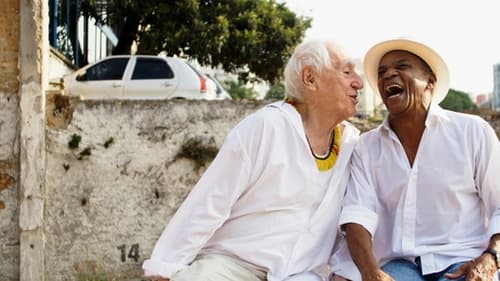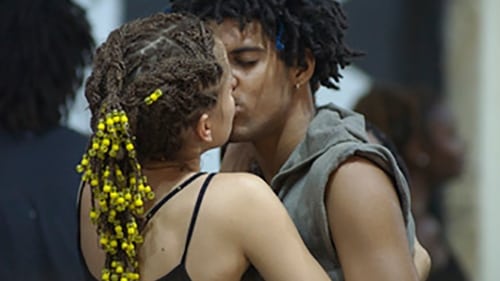Elisa Lucinda
Nacimiento : 1958-02-02, Cariacica, Espírito Santo, Brazil

Hickson lived off the books, running from one place to another to make a living. His only great achievement in life had been to win over his wife Jéssika, an evangelical hairdresser and his girlfriend since childhood. The two lead a life without great prospects in the suburbs of Rio de Janeiro until Hickson gets a job at an evangelical radio station. With luck, talent and the help of Jessica, he soon becomes a pastor and has a meteoric rise in the church. But with fame and money comes envy. What now Hickson?

Rainha Cupim

Neide
Roque and Pudim, composers from the old school of Vai-Vai, share a kitchnete, decades of friendship, love for their samba school and a doubt about the past: what happened to dancer Rita, their passion.
The emergence of Ritinha, the dancer's daughter, threatens to collapse this great friendship.

The night side of a modernist icon. The fauna and flora of Roberto Burle Marx's gardens inhabited by visitors to Parque do Flamengo while the city of Rio de Janeiro falls asleep.

Strong and feminine, "Why don't you cry?" addresses the delicate topic of suicide. Jessica is very closed, Barbara is a time bomb. The two meet when, at the stage of the faculty of psychology, Jessica meets Barbara. The coexistence leads Jessica to question her empty and meaningless life.

Dalva
Jorge is a private investigator that has a questionable character. He seeks information about the death of a young boy in a small city in the countryside of Brazil, that is full of unfriendly strangers. Nightmares with a woman that he has never seen before, Mariá, torments him. Their meeting, in a haunted woods, will reveal that it is not by chance that Jorge is part of this mysterious investigation.

Deus
During carnival Flaviana lives a pretty difficult dilemma; how to disguise from her last night lover who refuses to get out of her shower?

Elisa Lucinda
After being diagnosed with Alzheimer's, Lino Santos Gomes, the grandfather of director Barbara Marques, will move in with his family. Videos were made with cell phone lenses. From chaos to love, a grandpa’s day.

herself
The life and work of the late samba singer-songwriter Candeia.

Simone
After another day at work, Virgílio turns on the answering machine at home and hears a disturbing message. It's a message from Clara, communicating the end of their relationship. Virgílio then listens to the message repeatedly, seeking some meaning. Breaking up is not the problem; the problem is that Virgílio has no idea who Clara is.

Director

Self
This documentary investigates the aesthetic, political and existential trajectory of emblematic Black Brazilian actor Antônio Pitanga. He career spans over five decades, and he has worked with iconic Brazilian filmmakers Glauber Rocha, Cacá Diegues and Walter Lima Jr. He was a prominent figurehead and outspoken activist during the Brazilian dictatorship, a period of unrest in Brazilian cinema. Pitanga deep dives into the world of Antônio and the history of Brazil. The documentary was directed by his daughter Camila Pitanga, one of widely recognised faces in Brazilian television and cinema right now. The film is also a poem, and a tender ode to fatherhood.

Mãe de Cris
Paulo (Pedro Brício), a publicist of Rio de Janeiro, moves to Brasília (capital of Brazil) to be the manager of the public image of a senator who wants reelection. Paulo is accompanied by his wife, Cris (Cintia Rosa), a journalist with whom he has a small daughter. But their relationship is not moved by love, they are only together for the girl, the result of an unwanted pregnancy.

Maria do Rosário

The life of a Lebanese immigrant through 50 years in Brazil.

D. Maria
Free adaptation of Romeo and Juliet translated to the harsh life in Favela da Maré, one of largest and most violent slums in Rio de Janeiro. Living in a slum divided between two rival gangs of drug traffickers, Analídia is the daughter of one of the gangs' leaders and Jonathan is a childhood friend of the other gang leader. Both study in a dance group situated exactly in the middle of the two territories, looking for solace in art.

The life of irreverent poet Gregório de Mattos, who lived in Bahia, Brazil, in the 17th century. Nicknamed Mouth of Hell, he used his transgressive poetry against the élite of the time.

Sra. Rocha
Scoundrel João Fausto, a former Portuguese officer, arrives in Tiradentes,in the State of Minas Gerais, Brazil. Using his status of former Imperial Court member, he tries to become lover of both ms. Lima and ms. Rocha, with the intention of taking their money.

Nopumoceno, the most successful businessman in the Cabo Verde archipelogo, is an ambitious, clever opportunist, known during his lifetime as "eternity single". However, he is then discovered by his illegitimate daughter to have gotten his fortune and his women in unorthodox and incredible ways

Theater director asks his actors for a research on human cruelty and misery in Brazil, while trying to raise funds for his next production, a play based on a story by Machado de Assis, "A Causa Secreta" (The Secret Cause). The troupe oblige and go around town witnessing long lines in National Health Services, inhuman conditions in public hospitals and poor people being constantly humiliated. They find people are becoming indifferent to human suffering.

Orestes, a rich factory owner, falls for the beautiful Fulvia. They communicate using pigeons, to avoid being discovered by her husband.

In an overcrowded prision cell, each man has to make his own way and secure himself from the constant threat of sexual violence coming from the rest of the inmates.

Work in progress by Sabrina Fidalgo.















